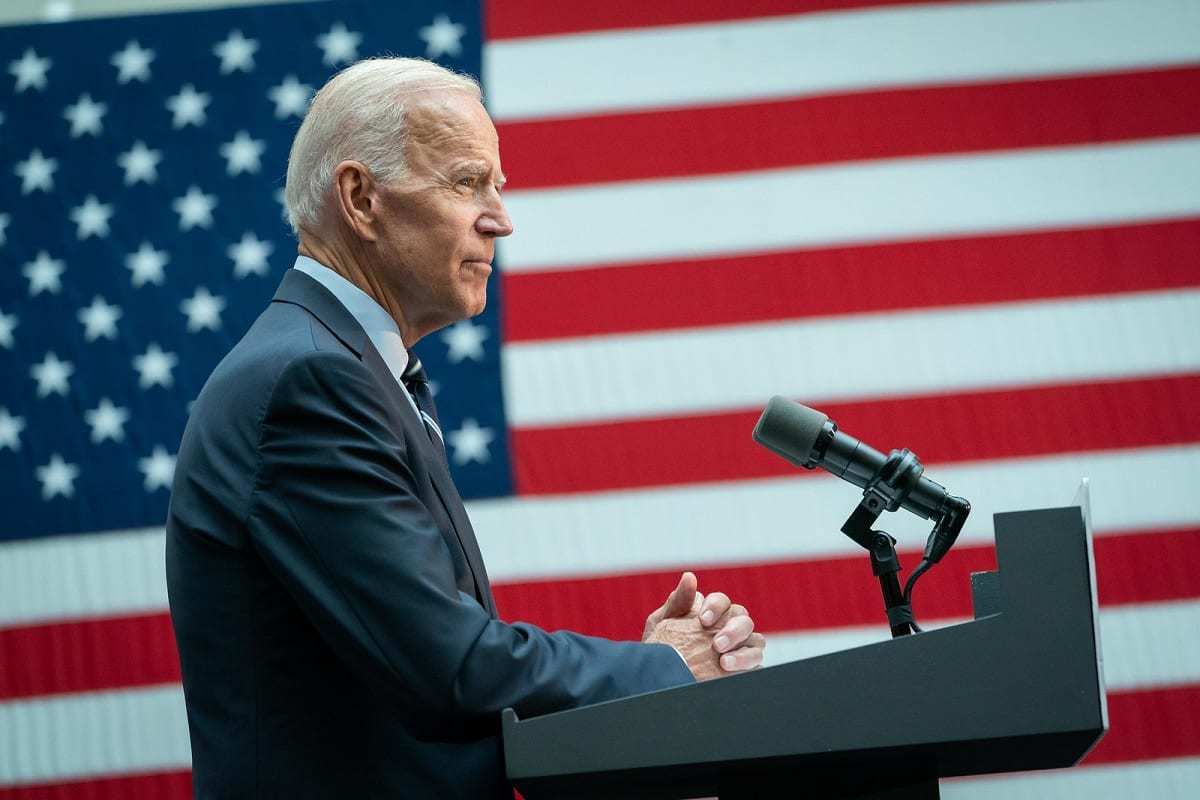Indirect talks between the United States and Iran resumed this week in Vienna with world powers eager to find out if the Islamic Republic would agree to curtail its nuclear program. The truth: the negotiations were over before talks began and, without a change in Washington’s strategy, Tehran will soon become a nuclear weapons threshold state.
The reversal of fortunes for the Islamic Republic is breathtaking. The regime entered 2021 with just $4 billion in accessible foreign exchange reserves, according to the International Monetary Fund – down from more than $120 billion in 2017. The next year, the Trump administration ceased America’s participation in the JCPOA and launched a “maximum pressure” campaign that stretched Tehran’s finances to the breaking point. The regime cut back on subsidies, provoking mass demonstrations calling for an end to the dictatorship.
In 2020, General Qassem Soleimani, a top general in the Islamic Revolutionary Guard Corps (IRGC) died in a U.S. military strike. Unknown assailants gunned down Mohsen Fakhrizadeh, head of Iran’s covert nuclear-weapons program, throwing the regime further off-kilter. And Iran faced increasing pressure from the International Atomic Energy Agency (IAEA) to account for previously unknown and still undeclared nuclear sites throughout the country – and to explain why the agency discovered nuclear material at several of them.
The regime found itself backed into a corner. Until January 20, 2021.
President Joe Biden replaced his predecessor’s campaign of maximum pressure with one of maximum deference. Biden hoped that goodwill gestures would induce Tehran not just to return to the JCPOA, but to reach a follow-on agreement that included even tougher restrictions. In theory, the follow-on agreement would address the JCPOA’s many deficiencies – most importantly, its lack of restraints on either Iran’s missile program or its support for terrorism, and the deal’s sunset provisions, which would allow Iran to become a nuclear weapons threshold state after several years.
Biden’s strategy has turned out to be carrot-filled and stickless. The administration stopped enforcing its most important sanctions, allowing Iran to significantly increase its exports of crude oil to China. Washington would even unfreeze billions of dollars of regime assets to allow Iran to pay off its foreign debts.
Biden has also avoided taking any actions that he thinks might provoke Tehran and jeopardize a return to the JCPOA. When Iran ordered its proxies in Iraq and Syria to attack U.S. troops and related targets, the president responded with pinpricks or not at all. He took no action in March when a U.S. contractor died after an Iranian-backed attack on a U.S. base in western Iraq – nor did he respond militarily to a UAV strike on U.S. troops in Syria in October.
Rather than reciprocate Biden’s restraint, Iran seized on American weakness – increasing the frequency of attacks on the U.S and its allies while pushing its nuclear program far beyond levels once perceived as possible redlines for U.S. military action. Tehran has enriched uranium to 60 percent purity – nearing weapons grade – produced uranium metal – a component of nuclear weapons – and blocked IAEA access and verification efforts at key sites. Despite all this, the Biden administration instructed its allies not to put forward any resolutions of censure at the IAEA’s quarterly Board of Governors meetings.
The results? To use a football metaphor, Iran was arguably backed up to its own 1-yard line at the end of 2020 and is now driving deep into America’s red zone after just 10 short months.
Last December, Mr. Biden told New York Times columnist Thomas Friedman he wanted to negotiate new agreements “to tighten and lengthen Iran’s nuclear constraints, as well as address the missile program.” One year later, undermined by his own uneasiness about U.S. power and red lines – Iran enters the Vienna talks poised to keep pushing Biden to see how much more the United States will pay for Iran doing less than before.
With the administration walking right into a trap of its own making, it’s time for Congress to demand a policy reset on Iran. That includes exercising its statutory prerogative to review any nuclear agreement concluded with Iran before the president can lift any sanctions.
Congress should reject any deal that lets Tehran keep stonewalling the IAEA and fails to demand a full accounting of Iran’s prior nuclear weapons-related activities. Deceit isn’t a foundation for an effective agreement.
And a deal that suspends U.S. terrorism sanctions on Iran without the clerical regime halting its sponsorship of terrorism should also be rejected. Legislation codifying this principle would strengthen the Biden administration’s hand at the negotiating table. That would preclude Biden from providing financial lifelines for Iran’s central bank, oil company, tanker company and petrochemical company – all of which remain under U.S. sanctions for directly supporting terrorism.
In nuclear diplomacy, no deal is better than a bad deal. The President needs a reminder.
Richard Goldberg is a senior advisor at the Foundation for Defense of Democracies. He served on Capitol Hill, on the U.S. National Security Council, as the governor of Illinois’s chief of staff and as a Navy Reserve Intelligence Officer.

